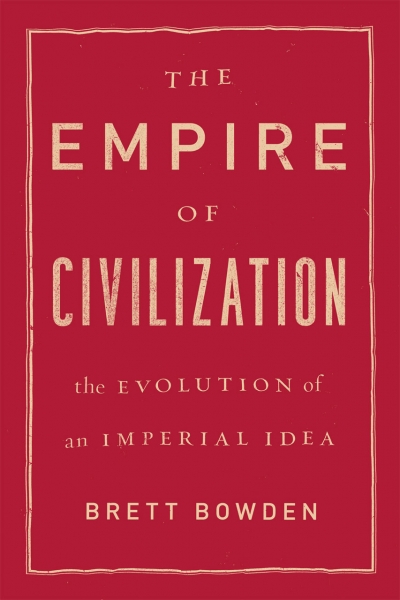The Empire of Civilisation: The evolution of an imperial idea
University of Chicago Press, $85 hb, 320 pp
Civilisation exposed
We all like to think of ourselves as civilised. Civilisation is like ethics: a concept and an underlying value system that seems impossible to oppose. Who, after all, could possibly be against civilisation? Who would want to take issue with the institutional stability, the democratic order and the standards of fairness, decency and culture we have come to see as hallmarks of a civilised life? Brett Bowden does. He does so in an ambitious and fascinating book that offers what could be called a genealogy of civilisation: an inquiry into the history, meaning and political impact of a concept.
At first sight, a genealogy of civilisation seems a rather dry and academic exercise. Bowden, a political scientist at the Australian Defence Force Academy, University of New South Wales, examines the political and cultural contexts in which the idea and the ideal of civilisation emerged. He locates the linguistic roots of civilisation in fourteenth-century French, but then focuses primarily on how the concept took on an increasingly important meaning in the French, English and German vocabulary during the eighteenth and nineteenth centuries. Although Bowden draws only on English-language sources, he still offers a sophisticated and remarkably wide-ranging discussion of how the concept of civilisation became central to philosophy, legal discourse, scientific progress, socio-political institutions and colonial ambitions.
Continue reading for only $10 per month. Subscribe and gain full access to Australian Book Review. Already a subscriber? Sign in. If you need assistance, feel free to contact us.










Leave a comment
If you are an ABR subscriber, you will need to sign in to post a comment.
If you have forgotten your sign in details, or if you receive an error message when trying to submit your comment, please email your comment (and the name of the article to which it relates) to ABR Comments. We will review your comment and, subject to approval, we will post it under your name.
Please note that all comments must be approved by ABR and comply with our Terms & Conditions.